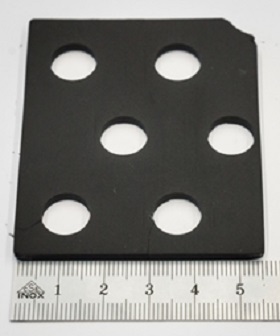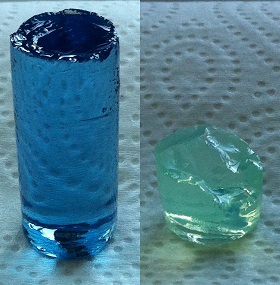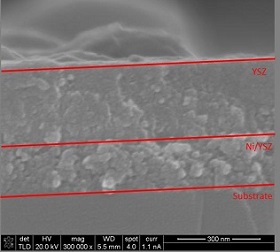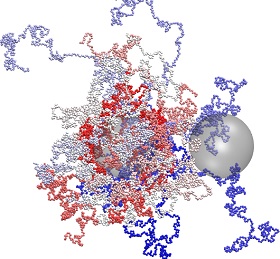Advanced Colloidal Materials Engineering
Following are our key topics:
Development of carbon sorbents for thermally driven heat-pump technology (SNSF NRP-70 “THRIVE” project)
Improved characterization and prediction of per-formance of different adsorber materials in thermally driven heat-pumps (EU H2020-“HyCool” project)
Co-gelation of resin and silica-based chemistry for composite aerogels with novel properties (sorption or thermal insulation above room temperature (100-300 °C)
Use of tailored carbons for electrochemical energy storage (batteries, supercaps, fuel cells)
Study of different coprecursor systems to pursue new activities and collaborations in energy applications (eg. CO2 capture from ambient air)
Inorganic oxides and oxide/metal composites
Sol-gel method for the synthesis of phosphores-cent materials with improved afterglow.
Novel anode supported Empa approach for SOFC cells by combining porous sol-gel anodes with aerosol assisted CVD electrolytes (DePoLa project)
Metal nanoparticle - silica hybrid aerogels (Cu@SiO2, Ni@SiO2) with large porosity and surface area for catalysis for alcohol reforming
Exploration of new collaborations and applications (Conducting oxides such as SnO2:Nb)
Use of Porous Carbon/Inorganic oxide nanocom-posites as battery materials
Thin films, coatings and layers
Layered structures for applications in e.g. SOFCs.
Various sol-gel-based inorganic oxide and organic/inorganic oxide hybrid thin films with precise control over physical / surface properties, use of thin film technology for detection and sensing applications.
Novel polymer precursor chemistry for novel hybrid coatings.
Models at various scales for heat and mass transport as well as sorption in advanced porous materials.
Numerical models to improve our understanding of forces in and behavior of colloidal materials at particle level.

Dr. Sandra Galmarini
PhD Materials Science_ Atomistic Simulation of cementitious systems, EPFL
-
Share




